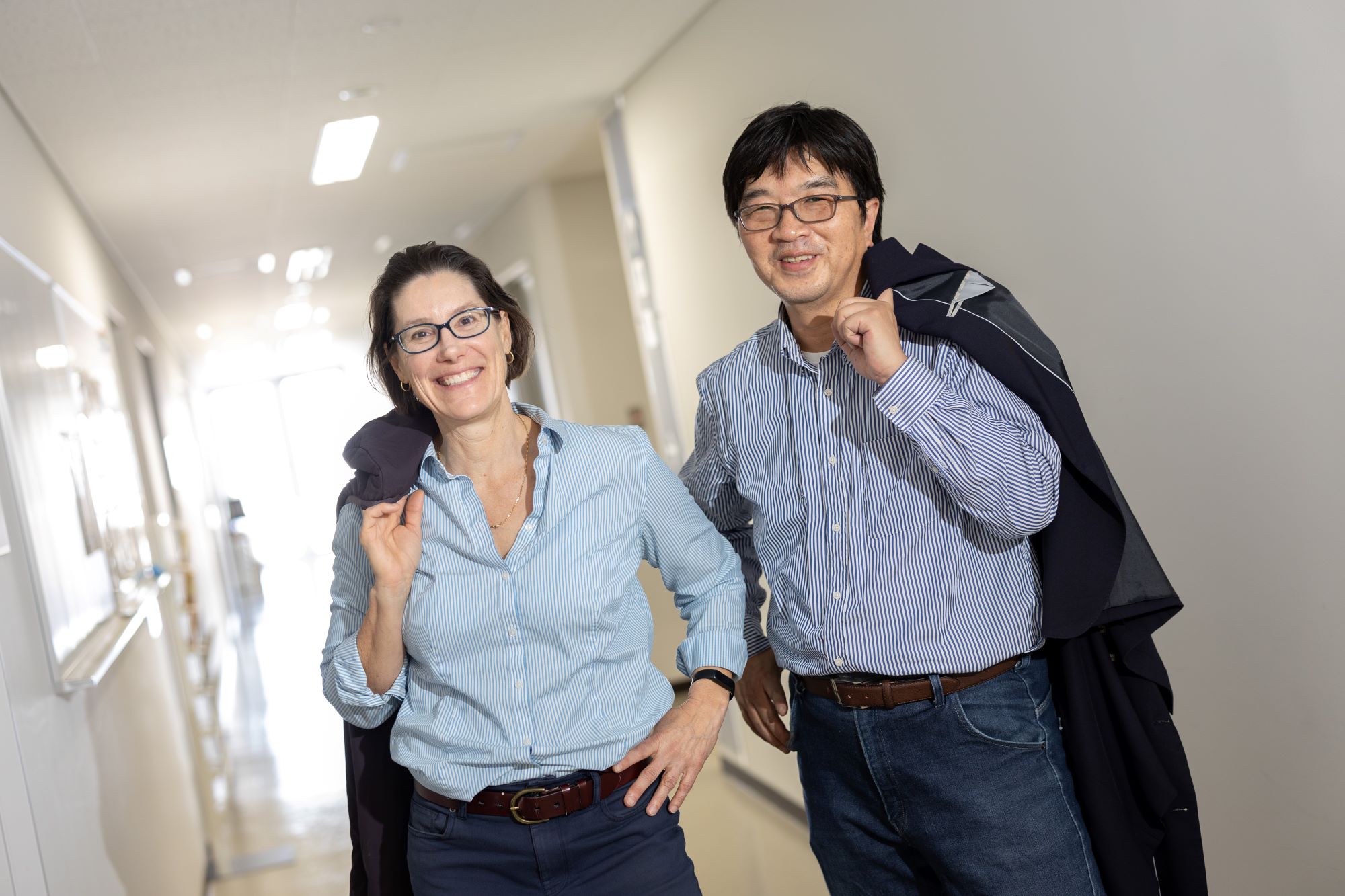
Professor Hiroshi Umakoshi, Graduate School of Engineering Science
"Brewing innovation: Collaboration in bio-inspired chemical engineering and coffee"
In the dynamic world of chemical engineering, Dr. Hiroshi Umakoshi is known for his research on developing bio-inspired chemical engineering (B-ICE) systems, whose applications span from one-pot processes to medical advancements like drug and vaccine delivery. Dr. Umakoshi has fostered a close collaboration with Dr. Tonya Kuhl from the University of California Davis (UC Davis), a Global Knowledge Partner of Osaka University. They both share a steadfast commitment to not only advancing the frontiers of science and engineering but also fostering young talent with an international mindset, as exemplified by Dr. Nozomi Watanabe, an assistant professor of Dr. Umakoshi’s lab, who has stayed at UC Davis to conduct research in Dr. Kuhl’s lab while delivering seminars and supporting student exchange activities.
At the core of Dr. Umakoshi’s research lies a deep fascination with membrane systems—an area where the intricacies of biological processes meet the innovation of engineering. His work seeks to emulate the efficiency and specificity found in nature’s designs, with a particular emphasis on their applications in diverse fields. In particular, he is developing ways to engineer and utilize liposomes and lipid nanoparticles as a model of condensed phase systems, where multi-step molecular recognition and conversion can be integrated. As the lab’s assistant professor, Dr. Watanabe leads a branch of the research to develop lipid nanoparticles in drug delivery and cosmetic applications, the most well-known of which is probably the one used in COVID-19 vaccine delivery. Having worked as a researcher in a pharmaceutical company, Dr. Watanabe brings her industry experience and international mindset to the lab, infusing her academic pursuits with a pragmatic and global approach.

Dr. Umakoshi’s collaborative activities with Dr. Tonya Kuhl demonstrate the power of transboundary cooperation. Together, they bring complementary expertise to the table, fostering an environment where ideas flourish and breakthroughs emerge. The collaboration extends beyond research, permeating the educational landscape at both universities. It is no coincidence that, in addition to serving as the head of the Chemical Engineering Department, Dr. Kuhl also co-directs the UC Davis Coffee Center, which is running a successful pre-college program on chemical engineering and coffee. She has been visiting OU regularly to teach this class, a popular international exchange subject where 50 to 100 OU students enroll each year.

In the delightful intersection of bio-inspired chemical engineering and coffee, Drs. Umakoshi, Watanabe, and Kuhl embody the spirit of collaborative innovation. As the aroma of freshly brewed coffee continues to waft through laboratories on both sides of the Pacific, their partnership promises to leave an indelible mark on research and education at both universities.
Text: Clement Angkawidjaja/Edit: Christopher Bubb